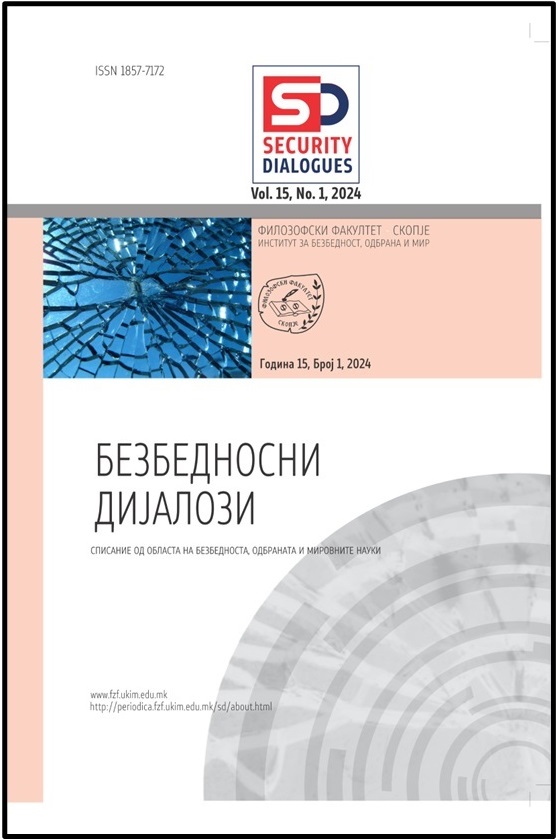COMMON SECURITY DENOMINATOR OF THE WESTERN NALKANS IN THE THIRD DECADE OD 21ST CENTURY: RISKS, OBSTACLES AND OPPORTUNITIES
ДОИ:
https://doi.org/10.47054/SD2516149gjКлучни зборови:
Western Balkans, NATO, security, common denominator, risks, cooperation, coordination, integrationАпстракт
The purpose of this paper is to identify the key security risks in the area of the
Western Balkans, which are actually the common denominator in attempts at cooperation,
coordination and integration in the field of creating defense and security policies, on regional
and national level. Apart from the identification of security risks that determine the viability
of Western Balkan actors, the fact that it is a region that is not fully integrated within the
NATO defense and security infrastructure, partial integration will be used as a variable in the
analysis of cooperation opportunities, in the political and contractual context. Finally, the
capacities of regional cooperation in the field of security, determined by bilateral and regional
agreement frameworks, will be presented. The contribution of this work in a scientific sense
will be the answer to the question of how much the potential joint action of small states in
the face of modern security risks affects the process of creating security sustainability at the
individual (state) level, as the ultimate goal in understanding national interests.


